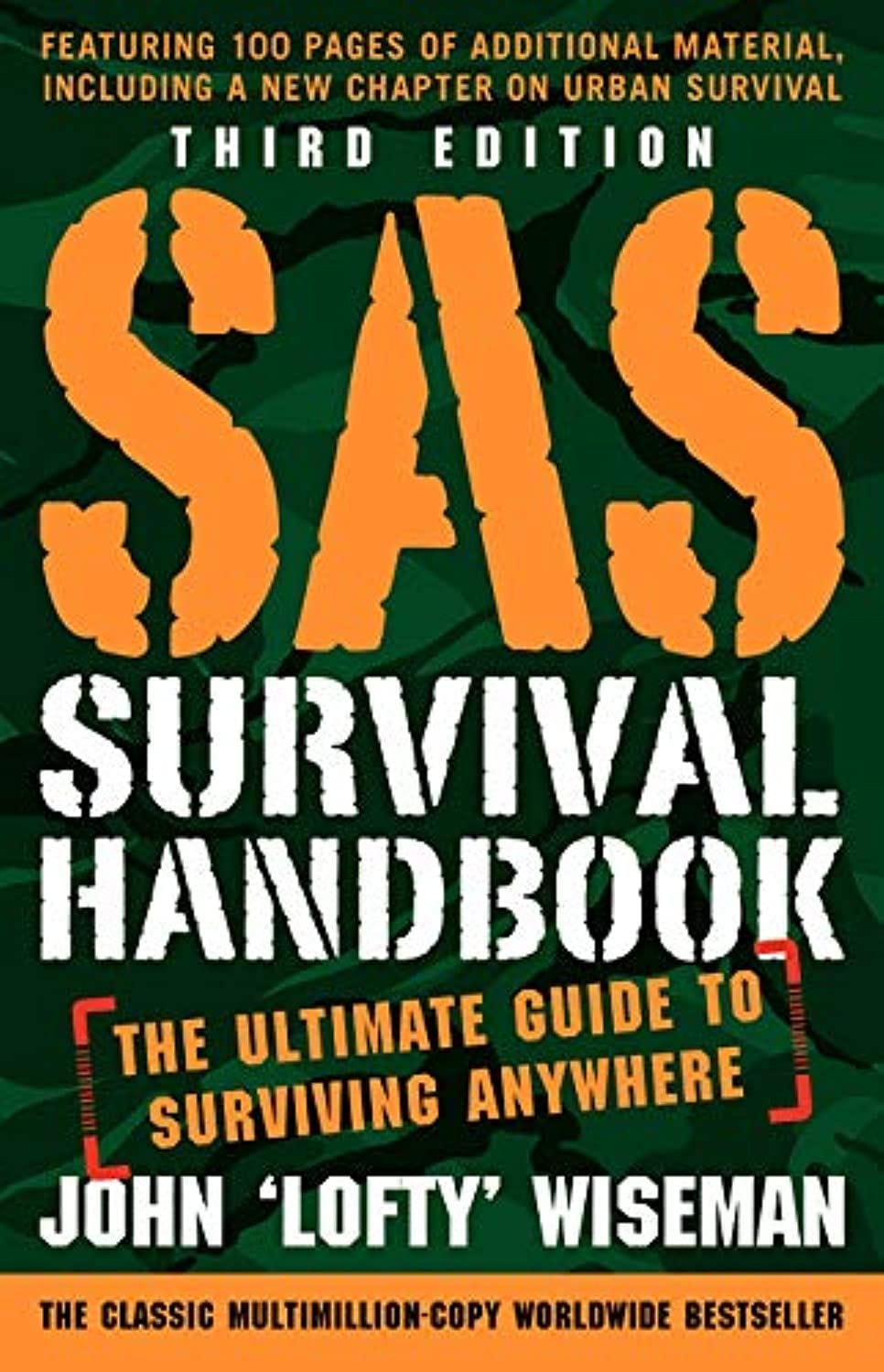Building Your Survivalist Book Library: Essential Reference Books for a Grid-Down World
In a world where the power grid fails and the internet goes dark, knowledge becomes one of your most valuable assets.
While digital resources are convenient, they’re useless without electricity.
A well-curated survivalist book library—hard copies you can hold in your hands—ensures you have the information you need to navigate a crisis, from securing food and water to providing medical care and rebuilding self-sufficiency.
As survivalists, we prepare for the worst while hoping for the best, and a robust library is a cornerstone of that preparedness.
Below, I’ve outlined why a physical book library is critical and compiled a list of the most essential reference books to have on your shelf.
These are practical, time-tested guides that cover the core skills needed to thrive when modern systems collapse.
Each includes a description and a link to where you can purchase a copy (as of May 2025, all links are verified through Amazon for convenience, but check local bookstores or second-hand shops for deals).
These books are chosen for their clarity, depth, and applicability in a grid-down scenario, prioritizing skills over speculative fiction or overly niche topics.
Why a Physical Survivalist Book Library Matters
When the grid goes down, so does access to Google, YouTube tutorials, and digital PDFs.
Even devices like Kindles or tablets, often touted as portable libraries, rely on power and can fail due to EMPs, battery degradation, or physical damage.
Paper books are immune to these vulnerabilities. They don’t need charging, they’re durable (especially when stored properly), and they can be passed down or shared with others in your community.
A survivalist library isn’t just about hoarding books—it’s about curating knowledge you can act on.
The goal is to cover the essentials: water, food, shelter, first aid, security, and self-sufficiency.
These books should be practical, easy to understand (even for beginners or younger family members), and focused on skills you can’t easily memorize.
As one prepper on The Prepared forum noted, “Grid down, out, lost or gone issues are why our reference material should always be in book and paper form and not stored on devices that require electricity.”
Moreover, books are a hedge against chaos. In a crisis, you may not have time to experiment or guess.
A reliable reference can mean the difference between clean water and dysentery, or a secure shelter and exposure.
They also empower you to teach others, preserving knowledge for future generations.
As Mathew Stein writes in When Technology Fails, a curated collection of survival knowledge is like a blueprint for rebuilding civilization.
How to Build and Maintain Your Library
Prioritize Essentials
Focus on books covering core survival needs. Avoid fiction or overly theoretical texts that don’t offer actionable advice.
Choose Hard Copies
Opt for durable editions (hardcovers or well-bound paperbacks). Store them in waterproof containers or bags to protect against moisture and pests.
Source Smart: Check second-hand bookstores, thrift shops, or sites like Amazon for used copies to keep costs down. As one survivalist suggests, “Make frequent trips to second-hand stores to pick over the book sections.”
Organize for Access
Keep critical guides in an easily accessible location, like a go-bag or dedicated shelf. Consider pocket-sized editions for portability.
Practice Skills Now
Books are tools, not talismans. Practice the skills they teach before a crisis hits.
As a Reddit user on r/preppers wisely noted, “You can’t just put these books on the shelf and wait for SHTF. You have to be already learning and practicing these skills.”
The Essential Survivalist Reference Books
Here’s a curated list of the top reference books every survivalist should own.
These are chosen for their comprehensive coverage, practical instructions, and relevance in a grid-down, internet-down scenario. Each is a physical book you can rely on when technology fails.
The SAS Survival Handbook: How to Survive in the Wild, in Any Climate, on Land or at Sea by John “Lofty” Wiseman
Written by a former SAS instructor, this is the gold standard of survival guides. It covers everything from building shelters and finding water to foraging, navigation, and self-defense.
Its 600+ pages are packed with clear diagrams and step-by-step instructions, making it accessible for beginners and experts alike.
The pocket-sized edition is ideal for go-bags. As Seasoned Citizen Prepper notes, it’s “one of the most popular survival guides of all time” for its concise, universal approach.
Why It’s Essential: Its broad scope ensures you’re prepared for diverse scenarios, from wilderness survival to urban disasters.
Link: Amazon
The Survival Medicine Handbook: A Guide for When Help Is Not on the Way by Joseph Alton, MD, and Amy Alton, ARNP
This 700-page guide is a must-have for medical emergencies when hospitals are inaccessible.
It covers first aid, wound care, infections, chronic conditions, and even veterinary medicine for livestock. Written for non-medical professionals, it includes clear instructions and lists of supplies to stockpile.
The Prepared calls it a top pick for handling “scary and confusing situations” without power or professional help.
Why It’s Essential: Medical knowledge is critical in a grid-down world where a small injury can become life-threatening.
Link: Amazon
Bushcraft 101: A Field Guide to the Art of Wilderness Survival by Dave Canterbury
Description: A New York Times bestseller, this book focuses on thriving in the wilderness using minimal tools.
It covers the “5 Cs of Survivability” (cutting tools, cover, combustion, containers, cordage), plus foraging, trapping, and campcraft.
Its 256 pages are practical and richly illustrated, ideal for building self-reliance. Popular Mechanics praises its “valuable advice on navigating the wilderness.”
Why It’s Essential: It teaches you to live off the land, a key skill when supply chains collapse.
Link: Amazon
When Technology Fails: A Manual for Self-Reliance, Sustainability, and Surviving the Long Emergency by Mathew Stein
Written by an MIT-trained engineer, this 500-page manual is a comprehensive guide to surviving without modern systems. It covers water purification, food production, alternative energy, and basic engineering. Stein’s curated approach makes it a “solid reference” for rebuilding self-sufficiency, as noted by Survivopedia.
Why It’s Essential: It bridges the gap between immediate survival and long-term sustainability, offering DIY solutions for a post-grid world.
Link: Amazon
Prepper’s Long-Term Survival Guide: Food, Shelter, Security, Off-the-Grid Power and More Life-Saving Strategies for Self-Sufficient Living by Jim Cobb
This 240-page guide focuses on preparing your home for extended crises. It includes practical strategies for water collection, food storage, fortification, and off-grid power.
Written by a lifelong prepper, it’s packed with DIY projects and clear instructions. Read This Twice calls it “the ultimate resource for anyone seeking to prepare their home and family.”
Why It’s Essential: Its focus on urban and suburban survival makes it ideal for those planning to ride out a crisis at home.
Link: Amazon
Wild Edibles: A Practical Guide to Foraging, with Easy Identification of 60 Edible Plants and 67 Recipes by Sergei Boutenko
Description: This 300-page guide teaches you how to identify and use wild edible plants, with detailed photos and recipes.
It covers 60 common plants, making it accessible for beginners. Goodreads users praise its “easy identification” and practical approach.
Why It’s Essential: Foraging is a critical skill when food supplies run out, and this book ensures you can safely feed your family.
Link: Amazon
NO GRID Survival Projects by Claude Davis, Michael Major, Amber Robinson, and James Walton
This 302-page, full-color book offers step-by-step instructions for 70+ DIY projects, from rainwater harvesting to off-grid power systems.
Each project includes material lists and sourcing tips. A veteran survivalist, Major emphasizes practical, low-cost solutions. Amazon reviewers call it a “treasure” for self-reliance.
Why It’s Essential: Its project-based approach empowers you to build critical infrastructure, even with limited resources.
Link: Amazon
U.S. Army Survival Manual: FM 21-76 by Department of Defense
This 300-page military manual is a classic, covering survival in diverse environments. It includes navigation, shelter-building, food procurement, and psychological resilience.
OffGridSurvival notes that much of modern survival literature borrows from this guide.
Why It’s Essential: Its proven, no-nonsense approach is designed for high-stress situations, making it a reliable reference.
Link: Amazon
Honorable Mentions
Ham Radio for Dummies by H. Ward Silver: Essential for communication when the grid fails. It’s beginner-friendly with a focus on practical setup. Amazon
A Comprehensive Guide to Wilderness & Travel Medicine by Eric A. Weiss, M.D.: A pocket-sized first aid guide for quick reference in the field. Amazon
The Encyclopedia of Country Living by Carla Emery: A 900-page homesteading bible covering gardening, animal husbandry, and food preservation. Amazon
Medicine for the Outdoors by Paul Auerbach, MD: This essential guide provides highly illustrated, easy-to-follow guidance on immediate stabilization and treatment of persons with virtually any possible medical problem—designed for on-the-spot use when higher-level medical care is not accessible.
Vehicle and machinery repair manuals - Having manuals to the cars, trucks and machineery you have is also very important. Find the ones you need and add them to your library.
Final Thoughts
Your survivalist book library is an investment in resilience.
These books aren’t just for doomsday, they’re tools to build skills now, fostering independence and confidence.
Start with one or two, practice what they teach, and gradually expand your collection.
Our dependency on the power grid is far more fragile in comparison to printed works. Don’t wait for the lights to go out to realize the value of a hard copy.
What books are in your survival library?
Have you tested their techniques?
Drop a comment below. I’d love to hear your recommendations!
And if you found this post helpful, share it with your fellow preppers and subscribe for more practical survival tips.
Stay prepared, stay sharp.










This was an IMPORTANT article. Thanks for taking the time to write this! Just ordered SAS. I did not have ANY survivalist hard copies, and it never crossed my mind the reasons to have them. Thanks again!
Here are some of my survival books: 1. When Technology Fails 2. Natural Home Remedies 3.Camping & Wildherhess Survival 4.The Long Emergeny 5.Encyclopedia of Country Living 6.Curious Compendium of Practical and Obscure Skills 7.Diet For a Hot Planet 8.Gene Logston’s Practical Skills: A Revival. Of Forgotten Crafts, Techniques, & Traditions 9.Skills You’ll Need for the End of the World (as we know it) 10. The Frugal Homesteader 11. Survival With Style 12. Living Resistance: An Indigenous Vision for Seeking Wholeness Every Day. Thank you for your column as we’ve been told by others that we should get rid of all our books (two person’s libraries combined) and have them all transposed to e-books. In ages past there were those who saved the books during wars and other disasters. Hopefully there will be book savers if things get worse. Keep writing.